LowCarb San Diego 2023

 Blog image created with Canva
Blog image created with Canva
LowCarb San Diego 2023 by Roxana Soetebeer
What an experience! Last week, I participated in the 8th annual Symposium for Metabolic Health in San Diego.
The star-studded event covered topics such as cancer treatment and the metabolic health benefits of a ketogenic diet.
This was my second year attending the event. What I loved most was reconnecting with the people I met last year; they feel like family. They u nderstand the struggles, the benefits, and the science behind low-carb/keto lifestyles. They are my tribe.
When asked, "What is more important: diet or exercise?"
His response: "Do you fly?"
"Yes."
"Which wing is more important?"
To kick off the symposium about metabolic health, what better way than to book an exercise session at 6:30 AM.
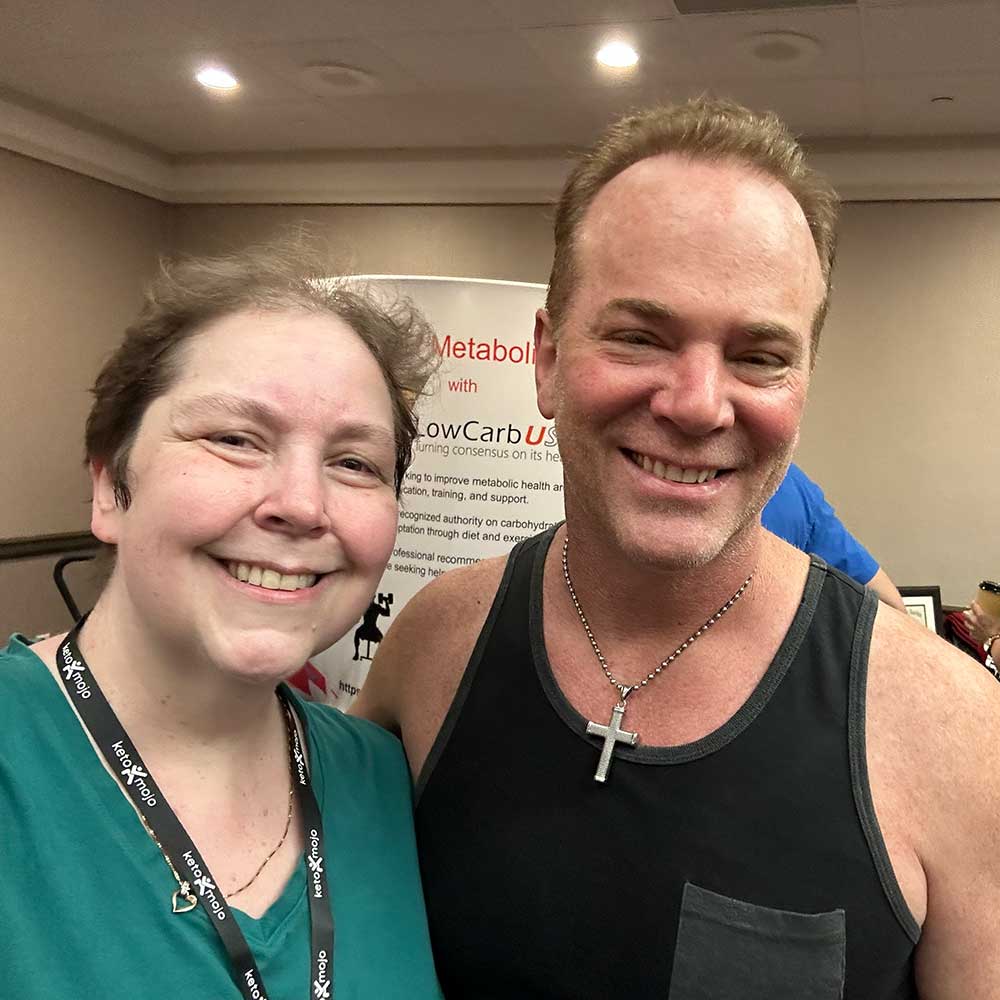
Here's a photo with my instructor Jeff after my exercise session.
Day one was dedicated to cancer and alternative treatment options beyond the standard of care.
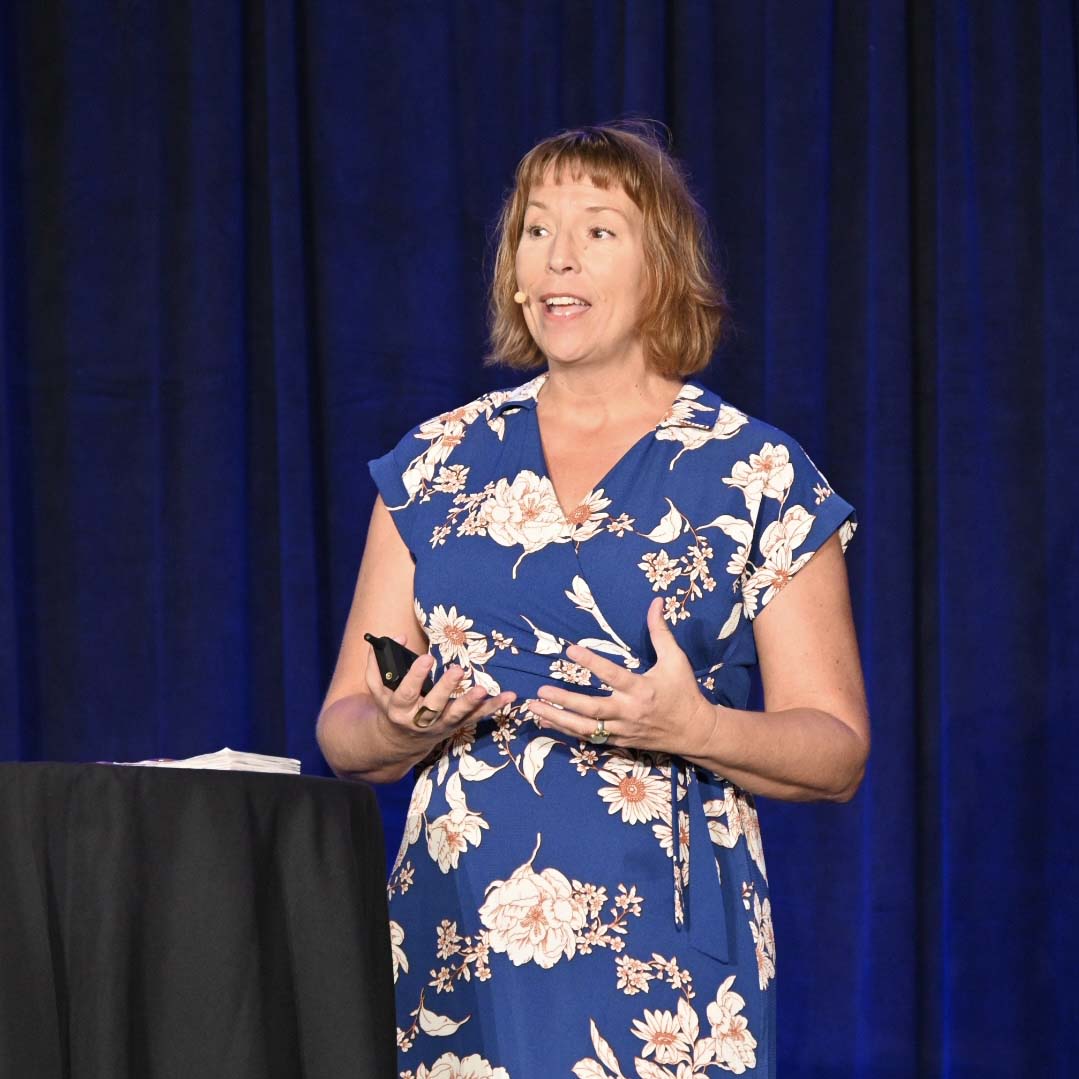
The first speaker was Nasha whose talk was titled "Let There Be Light: The Impact of Light on Our Metabolic Health".
I learned about photodynamic therapy, a technique that targets only cancerous cells without harming healthy tissue (unlike radiation). It can even target residual cells missed during surgery. It's been around for four decades, yet many people are unaware of its existence. This therapy can be applied locally or systemically, making it a promising intervention.
- "Red light enters the mitochondria itself."
- "Chicken skin on the back of arms indicates vitamin A deficiency."
Nasha also discussed blue light blockers. Although studies don't definitively support their benefits, she encouraged everyone to try them under artificial light. She noted an increase in glucose and a decrease in ketone levels when not using blue light blockers.
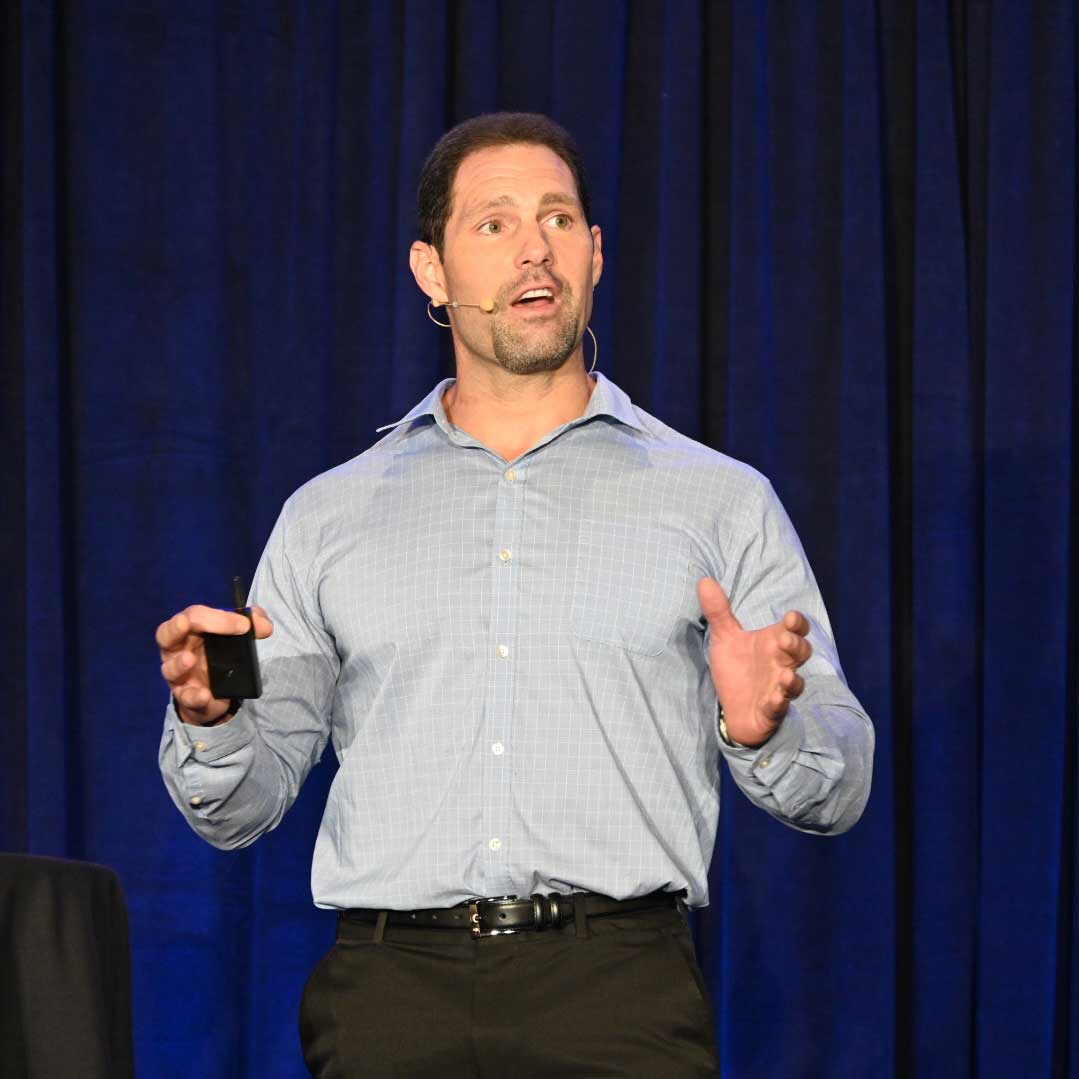
Next up was Dominic, discussing "The Science and Application of Ketone Metabolic Therapy".
Otto Warburg was the first to identify cancer as a metabolic disease. The talk covered hyperbaric oxygen therapy for reversing tumour hypoxia and the use of a ketogenic diet in cancer treatment.
Dominic D'Agostino cautioned against raising exogenous ketone levels above 2 mmol for cancer patients, as this could activate mTOR and up-regulate insulin release. It is a counter-regulatory insulin response that should be avoided.
During the panel discussion, Dominic was asked about the role of oral glutamine. He highlighted its importance in restoring nitrogen balance, gut integrity, and immune regulation. He also addressed headaches from excessive protein intake due to histamine sensitivity, suggesting that vitamin C added to protein sources like canned fish could help mitigate the issue.
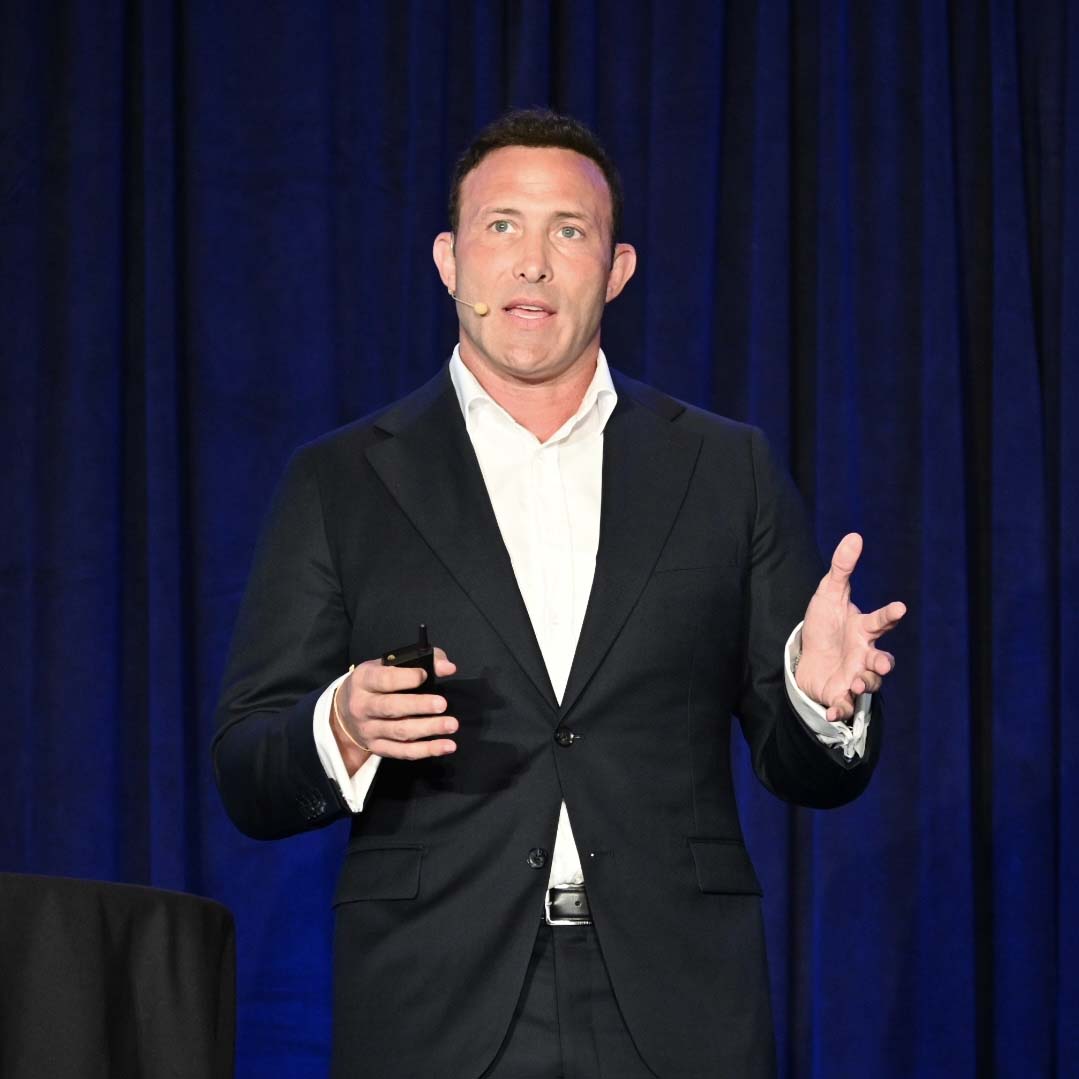
Anthony talked about "Metabolic Theories of Cancer".
He presented case studies showing tumour reduction in glioblastoma multiforme (GBM), an aggressive brain cancer. Some patients survived 10 years and are still alive using a combination of the ketogenic diet and surgery. Some patients did find keeping with the ketogenic too difficult despite improvements and died within a year after getting off keto.
A retrospective case study and systematic review demonstrated the feasibility and safety of the ketogenic diet in treating malignant gliomas. Successful GBM treatment was observed without any other interventions.
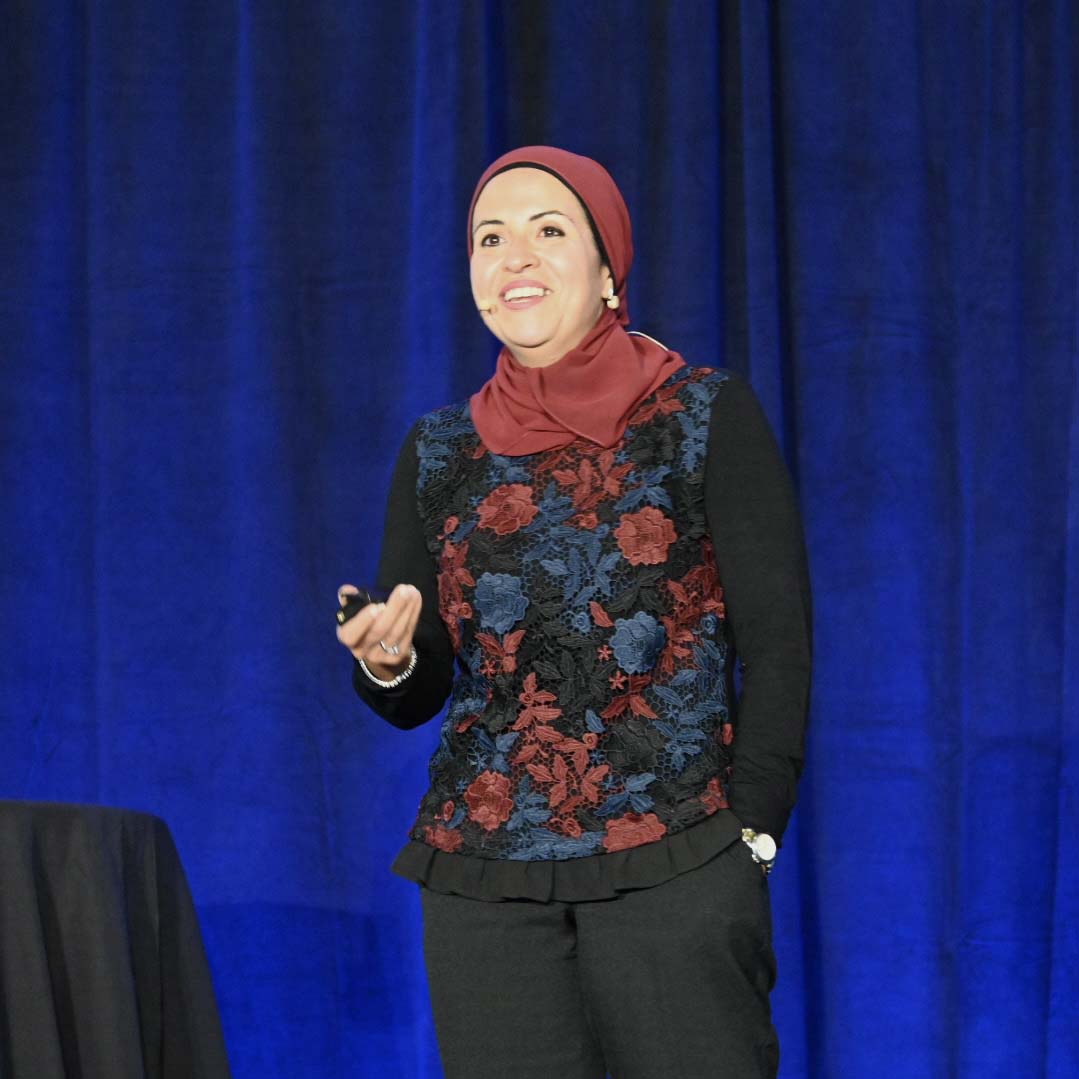
Wafaa discussed "Integrative Approaches to Breast Cancer Prevention & in Adjuvant/Metastatic Settings - Case Studies".
She presented a case study on reversing treatment-resistant breast cancer using a metabolic/integrative oncology protocol.
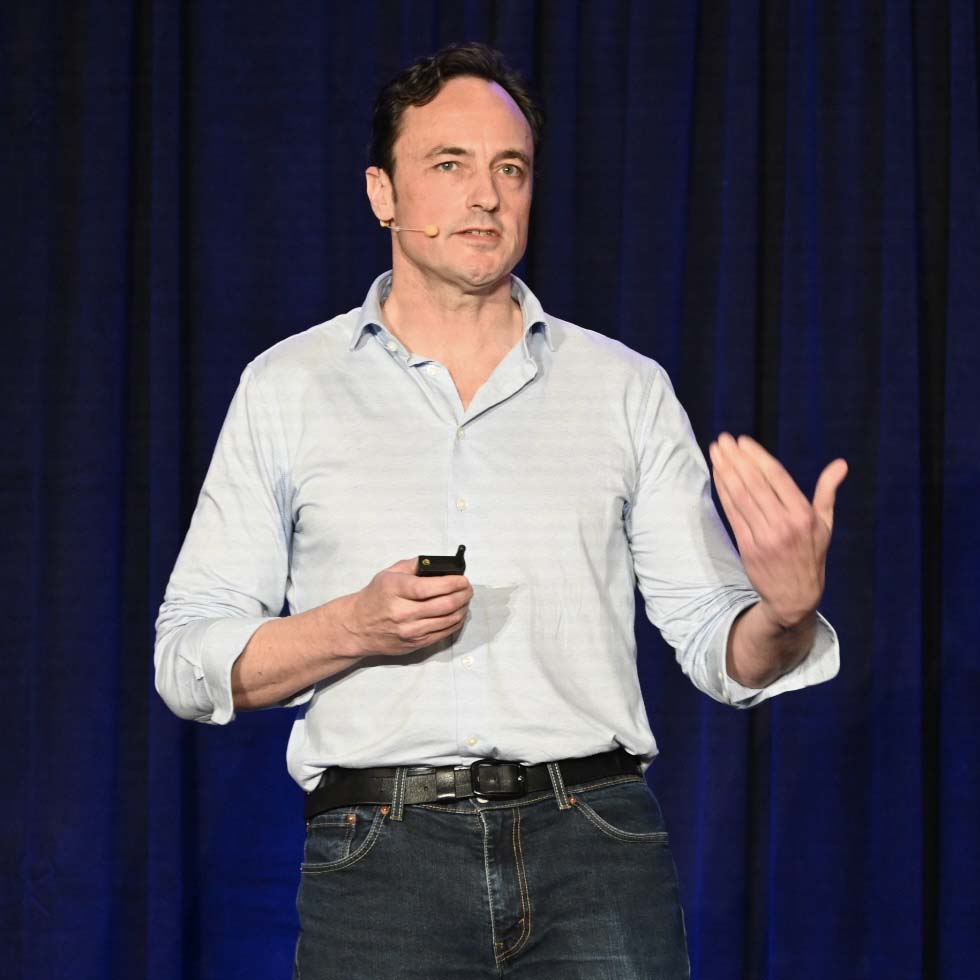
Matt presented on "Cancer In Evolution". He explained that the mitochondria dysfunction theory of cancer centers around metabolic dysfunction. Metabolic therapy can make normal cells more resistant, but not cancer cells, by depriving them of glucose and flooding them with ketones. This approach prevents cancer cells from entering stress-resistance, potentially making the therapy successful.
Monitoring the Glucose Ketone Index (GKI) is crucial in cancer treatment. In animals, a GKI of 6 or lower has slowed cancer growth. Although human goals aren't firmly established, they likely should be under 3 or 2.
The ultimate goal is to restore mitochondria to prevent cancer recurrence by reducing exposure to oxidative stress and promoting mitogenesis.
Most people assume that our natural state is the fed state (glucose-based), but it's actually not. Physiological ketosis is our natural state.
Fasting before chemotherapy has been shown to enhance the resistance of healthy cells. Additional benefits come from press-pulse therapy, developed by Dominic D'Agostino. It's the idea of using ketone metabolic therapy (or therapeutic ketosis) to gradually eliminate cancer cells.
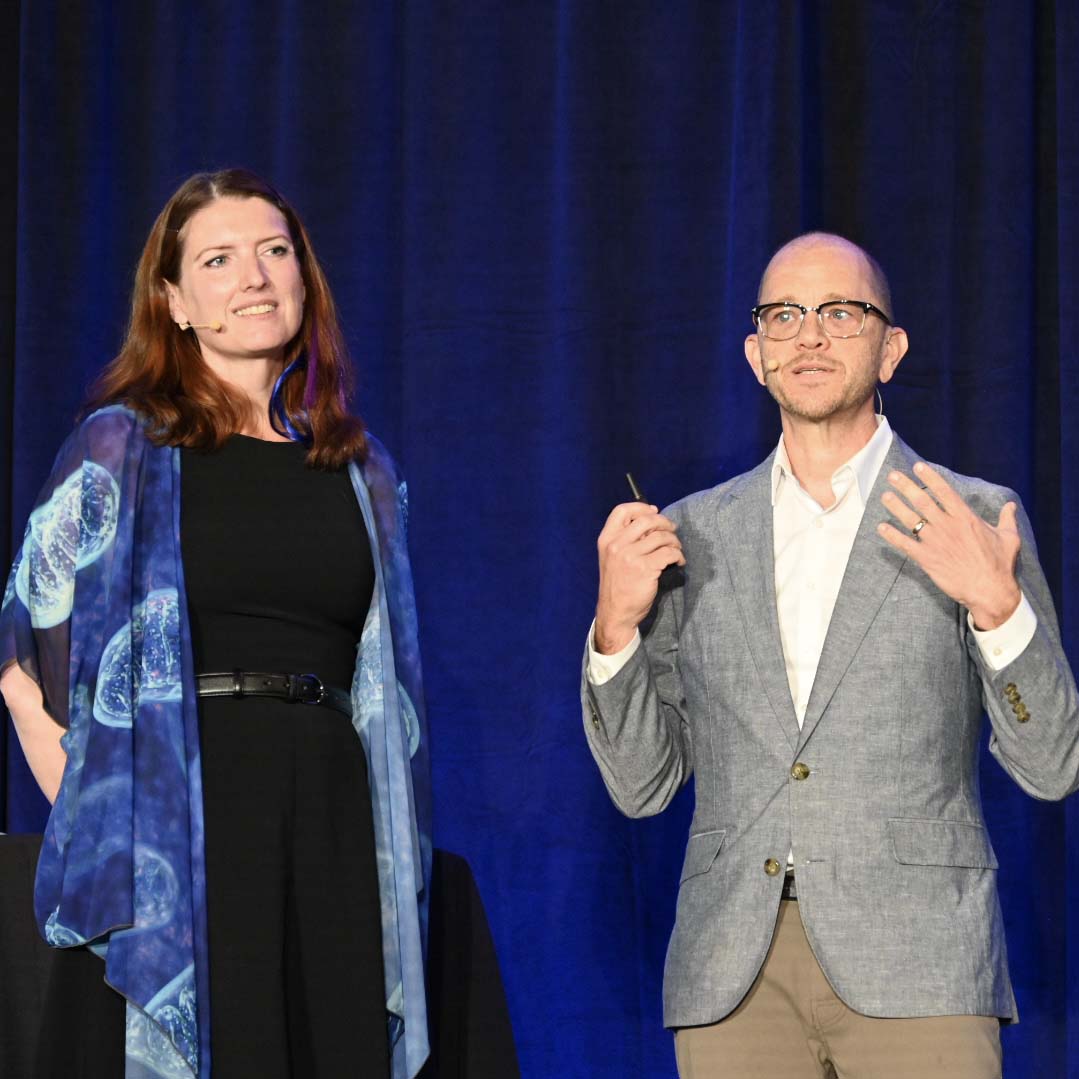
The final speakers of day 1 were Brad & Maggie, presenting: "CANCER/EVOLUTION: The Metabolism of Cancer and Emerging Associated Therapies".
They shared Maggie's incredible survival story against all odds. Diagnosed with stage 4 metastatic cancer in the brain, eyes, and lungs, she realized standard care wouldn't be enough. Despite initial radiation therapy, the cancer persisted. Four years later, she remains a long-term survivor and cancer-free.
Their presentation explained cancer metabolism and emerging therapies. Cancer cells utilize glucose and fermentation even without oxygen.
The following days were filled with cutting-edge low-carb science. For this blog, I'll mention just three more speakers.
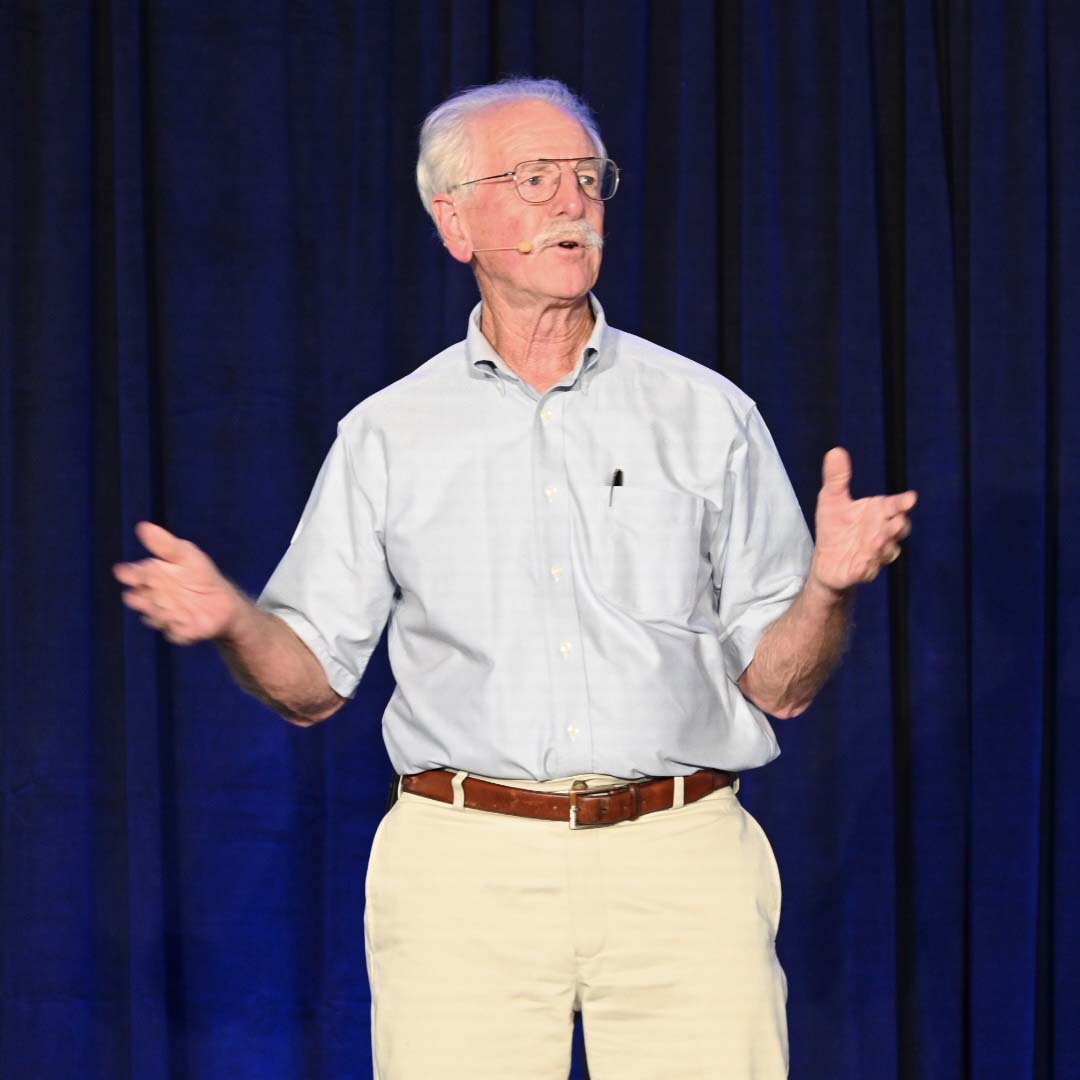
Steve discussed "Low Carb, Keto, or Nutritional Ketosis: The Physiologic and Health Distinctions".
Dr. Stephen Phinney holds a special place in my heart. Four years ago, dealing with NASH and uncontrolled type 2 diabetes, his insights inspired me to embark on a keto journey that led to significant weight loss, NASH reversal, getting off insulin shots, and a healthy A1c. I can never express too much how grateful I am for his work to advance low carb science and his impact on my own health.
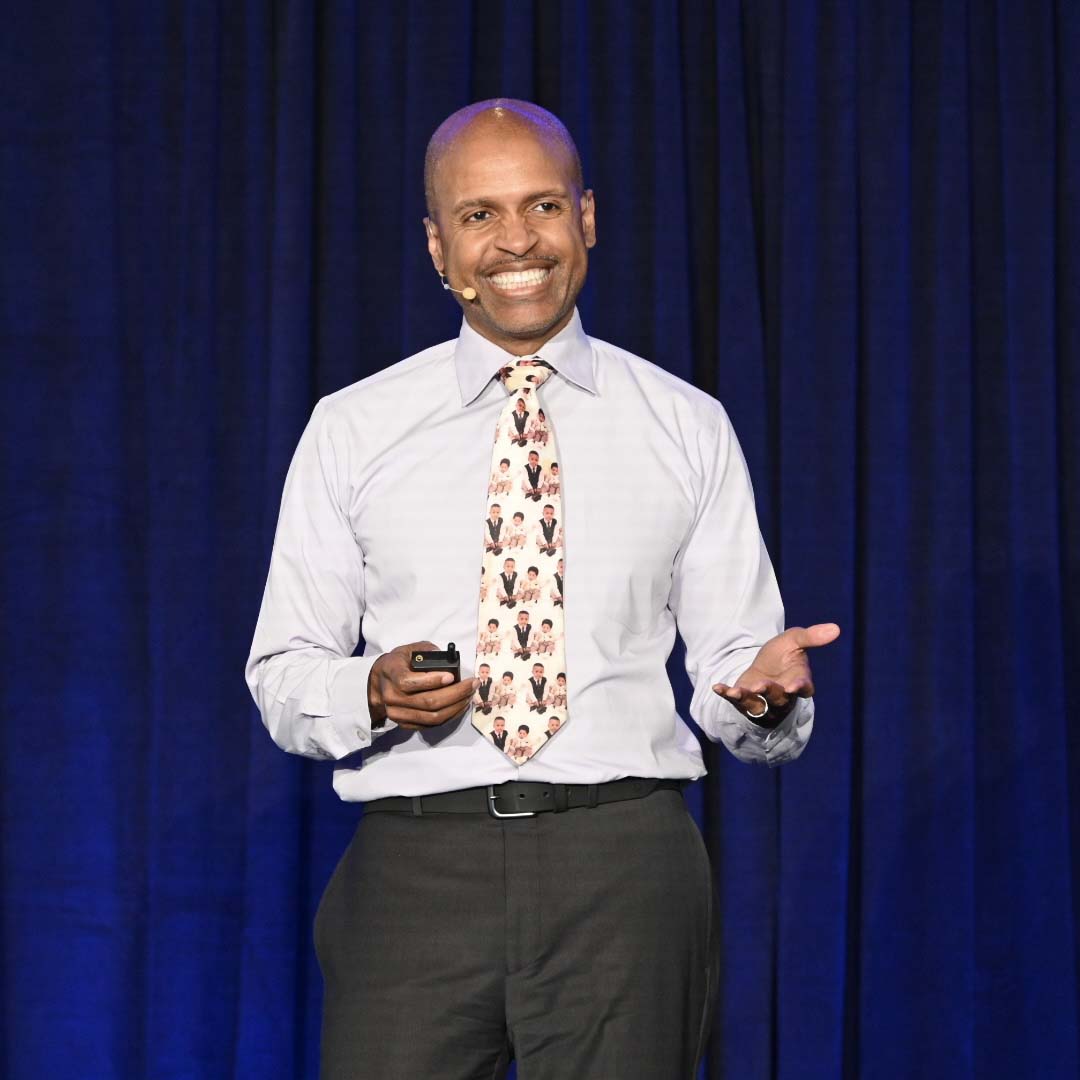
Tony has become a dear friend since last year's conference. In his talk about "My Rationale for Why Vegans and Carnivores Should Live in Harmony", he provided 15 lessons on how these dietary approaches can coexist. I had a lot of fun being a guest on his podcast Protecting your NEST last year.
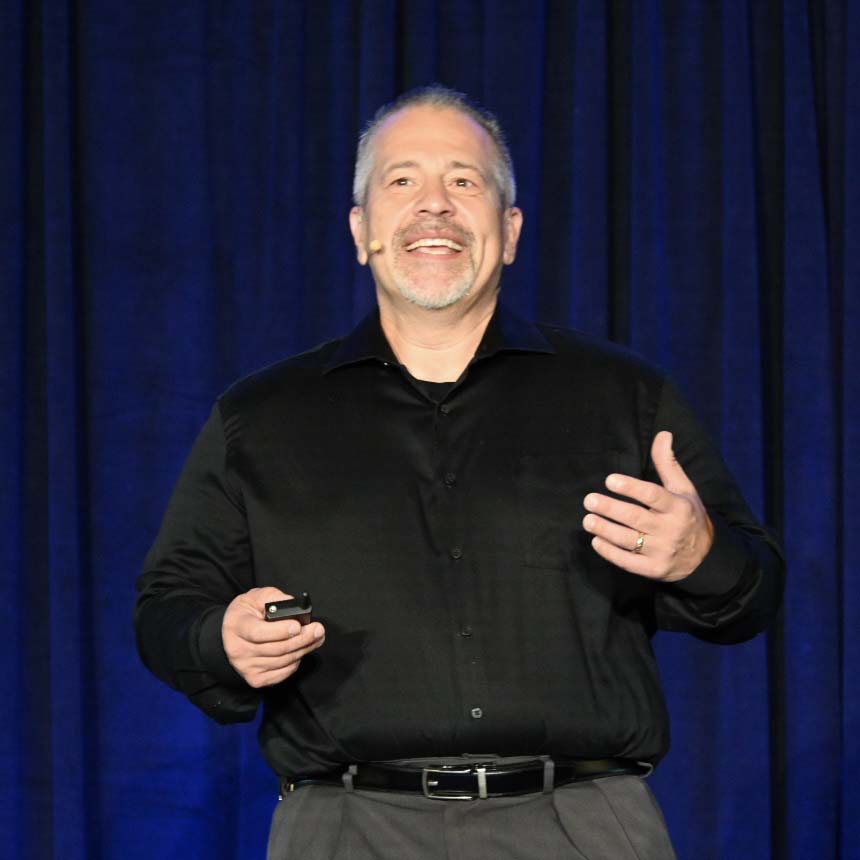
Brian presented "Rest Assured: Unveiling the Impact of Stress and Sleep on Metabolic Health". He had invited me to the LowCarbMD Episode 213 with Dr. Tro.
Quality sleep significantly influences metabolic health. I will be sharing my own journey to better sleep in an upcoming blog.
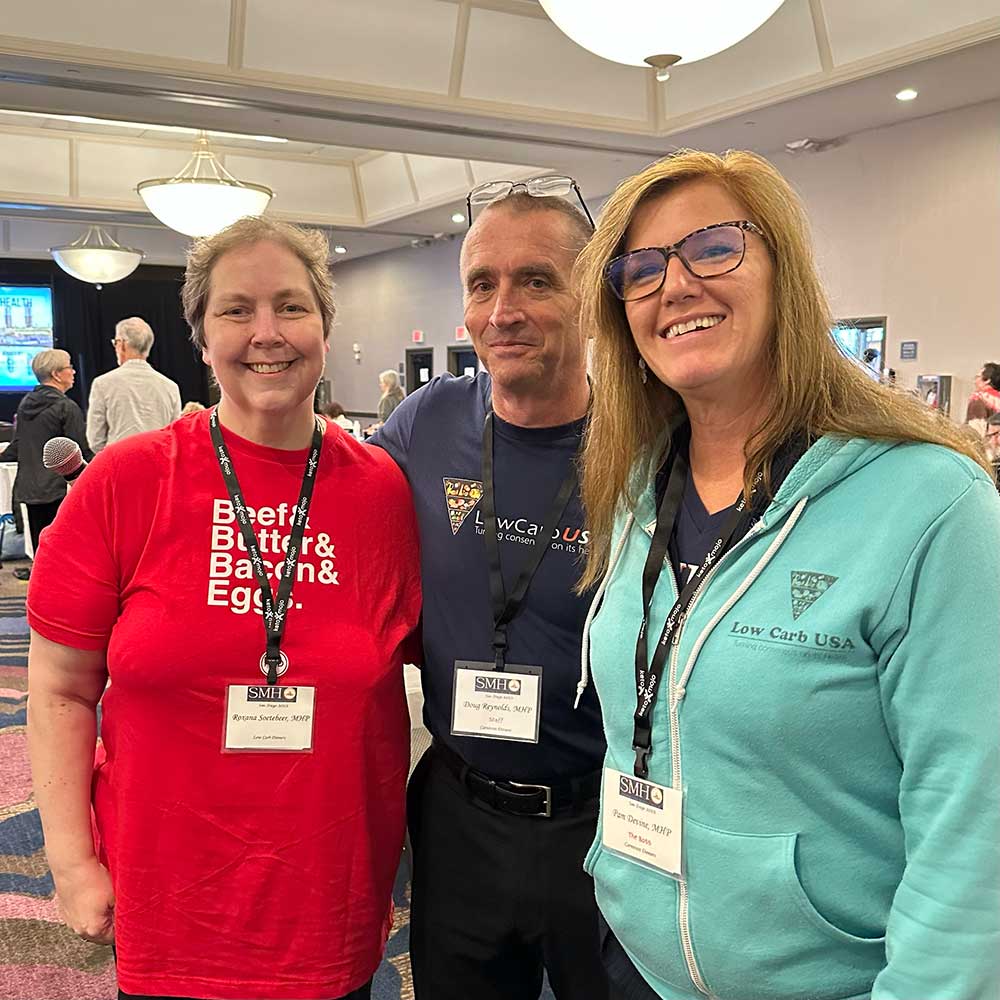
Lastly, Doug and Pam deserve mention for their tireless efforts in organizing these conferences. They secure top-tier speakers and ensure a great experience. They have my full support.
If you're interested in connecting with participants and speakers, be sure to book your spot for next year. The Early Bird discount offers 35% off the regular price. CMEs can be obtained for certification and continuing medical education.
For more information, please visit https://thesmhp.org.
And if you would like to dine with leaders in the low carb field like Tony Hampton and Brian Lenzkes, secure your ticket for next year's Symposium for Metabolic Health in San Diego.
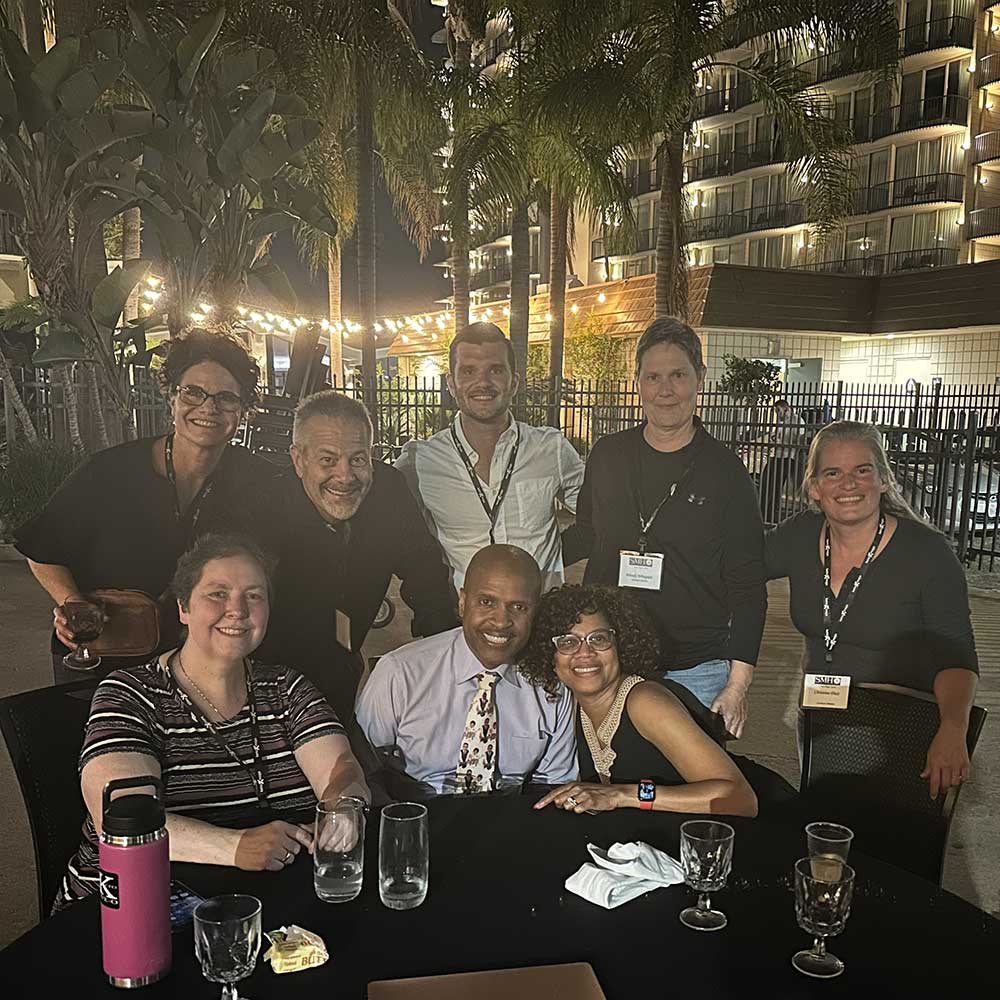
Written by Roxana Soetebeer MHP
Published August 26th, 2023
Social Media:
Facebook
Twitter Joy
Twitter Roxana
Keto Coaching now offered worldwide
Prof. Tim Noakes and 6 more

Ketogenic: The Science of Therapeutic Carbohydrate Restriction in Human Health
Dr. Ken Berry MD

Lies My Doctor Told Me Second Edition
Dr. Chris Palmer MD

Brain Energy: A Revolutionary Breakthrough in Understanding Mental Health--and Improving Treatment for Anxiety, Depression, OCD, PTSD, and More
Michelle Hurn RD

The Dietitian's Dilemma: What would you do if your health was restored by doing the opposite of everything you were taught?
Dr. Benjamin Bikman PhD

Why We Get Sick: The Hidden Epidemic at the Root of Most Chronic Disease - and How to Fight It

